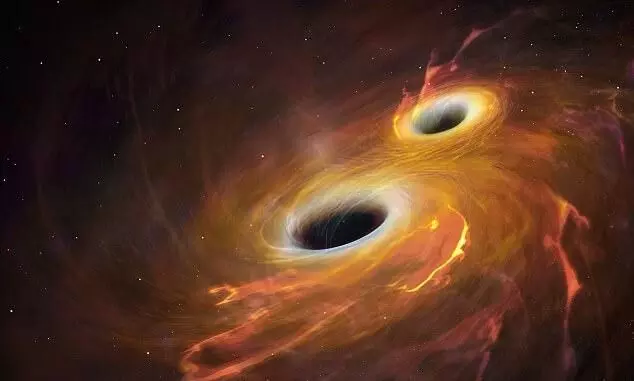
New research may solve Stephen Hawking’s black hole paradox with 'frozen stars' theory
text_fieldsA recent study challenges traditional views of black holes and proposes a revolutionary concept that could resolve long-standing paradoxes in astrophysics.
Black holes, originally described by Karl Schwarzschild in 1916, are thought to feature a singularity and an event horizon.
However, Stephen Hawking's discovery of Hawking radiation in the 1970s raised significant issues, particularly the "information loss paradox," which questions what happens to the information about matter that formed a black hole if it evaporates due to radiation.
The new research, led by physicist Ramy Brustein from Ben-Gurion University, suggests that black holes may not exist in the form traditionally believed.
Instead, the objects we observe could be “frozen stars” - entities without singularities or event horizons that still appear similar to black holes. This theory would require a rethinking of Einstein's general theory of relativity to accommodate these alternative cosmic objects.
The frozen star model holds the potential to address the information loss paradox by avoiding the complications tied to singularities, offering a fresh approach to understanding these mysterious objects. Researchers believe that gravitational waves from cosmic events, such as black hole mergers, could help test this theory.
Detecting specific characteristics of frozen stars through these waves could provide the experimental evidence needed to confirm the model.
While promising, further research is needed to explore the internal structures of frozen stars and distinguish them from other celestial bodies like neutron stars.
Brustein and his team remain hopeful that future observations from gravitational wave detectors will offer crucial insights into this potentially groundbreaking theory.























